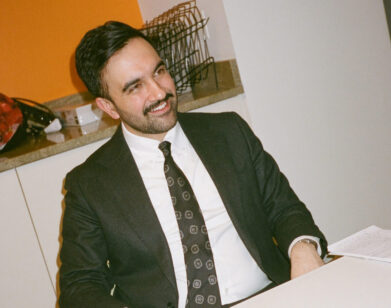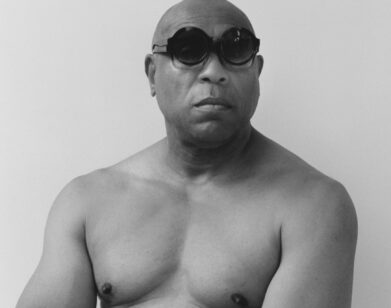Senator
Bernie Sanders Makes His Case for a Working-Class Revolution
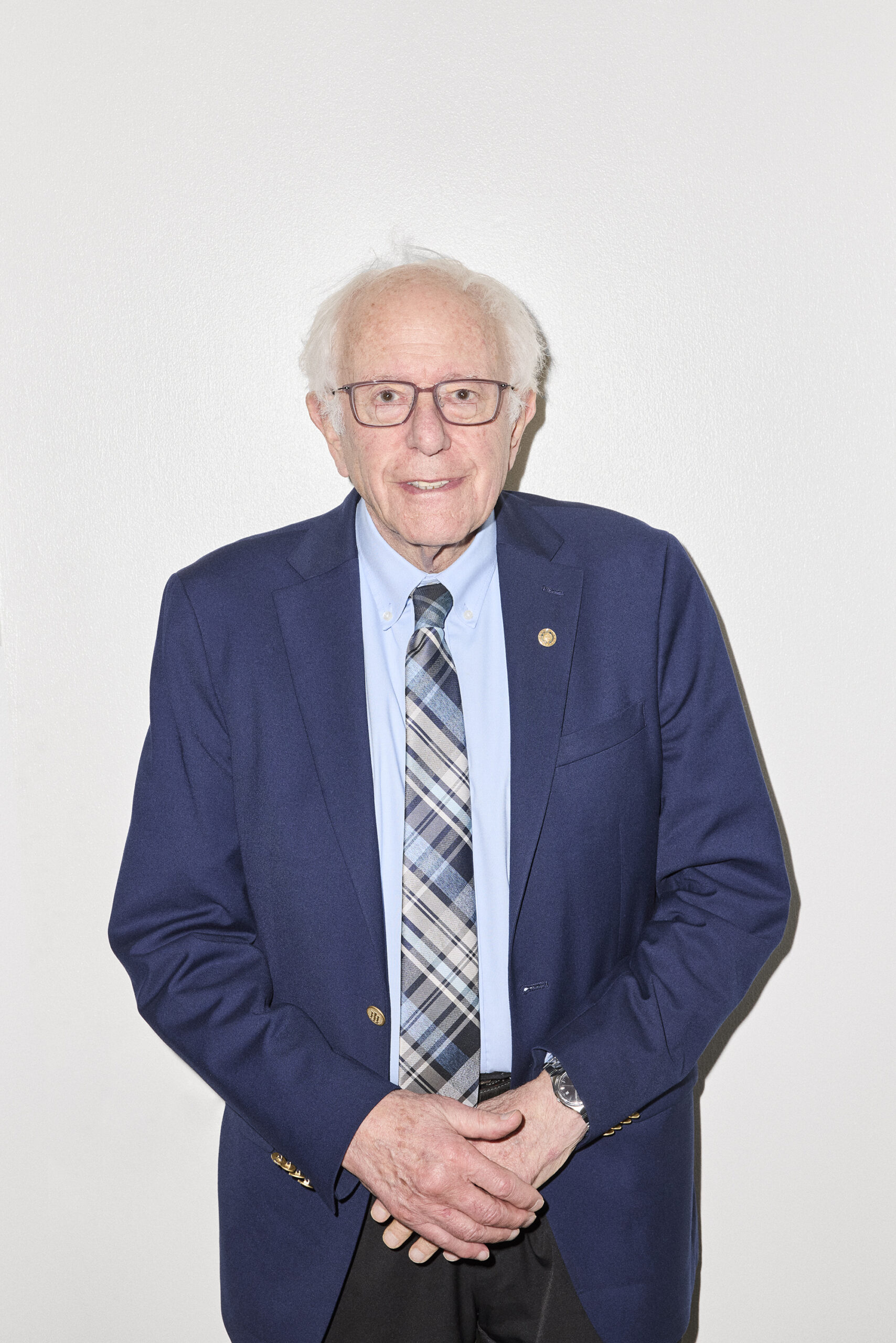
As America’s resources are starved by the elaborate power grabs of the filthy rich and the Democratic Party seems asleep at the wheel, Bernie Sanders often feels like our only hope. At 83, the senior senator from Vermont is still reminding us it’s “We the People,” not “We the Billionaires.” Yes, he was that bespectacled 21-year-old arrested in 1963 for protesting racial segregation. Yes, he just crisscrossed the country on the Fighting Oligarchy Tour. And yes, he’s backing New York City mayoral candidate Zohran Mamdani. But as he tells his friend, the journalist John Nichols, he cannot do it alone.
———
TUESDAY 3:30 PM JUNE 17, 2025 D.C.
JOHN NICHOLS: Hey, Senator. It’s John Nichols.
BERNIE SANDERS: Hey, John. Sorry for the delay. It’s been a bit of a crazy day. Let’s talk.
NICHOLS: Sounds good. We’ve known each other for a few years, Senator. We were both much younger when we got to know each other. I’ve noticed along the way that you prefer the term “working class” or “workers” as opposed to saying “middle class,” which is what a lot of Democrats use. Why is it important for you to distinguish the working class in America?
SANDERS: I think if you’re middle class in America today, you’re comfortable. You’re not stressed out. You’re not living day to day. But the truth of the matter is that 60 percent of Americans are living paycheck to paycheck. They’re living with enormous economic stress, worried about how they’re going to pay the rent. Are they going to be able to send their kids to college? How are they going to put food on the table? The working class of this country is struggling. Their worry is that their kids will have a lower standard of living than they do. So I think it’s important to make the distinction between the middle class and the working class.
NICHOLS: At the end of the day, the working class and most of the middle class are still getting the short end of the stick as regards the distribution of wealth in the United States.
SANDERS: I’m glad that you raised that because it’s an issue that very few people talk about, and there are reasons why they don’t talk. But I hope everybody understands that in America today, we have more income and wealth inequality than we’ve ever had in the history of this country. It really does shock me. You would think there’d be massive outrage in this country. What kind of system allows one person to have so much and so many to have so little? But the establishment does a good job telling us what we can be outraged about and what we should not be outraged about.
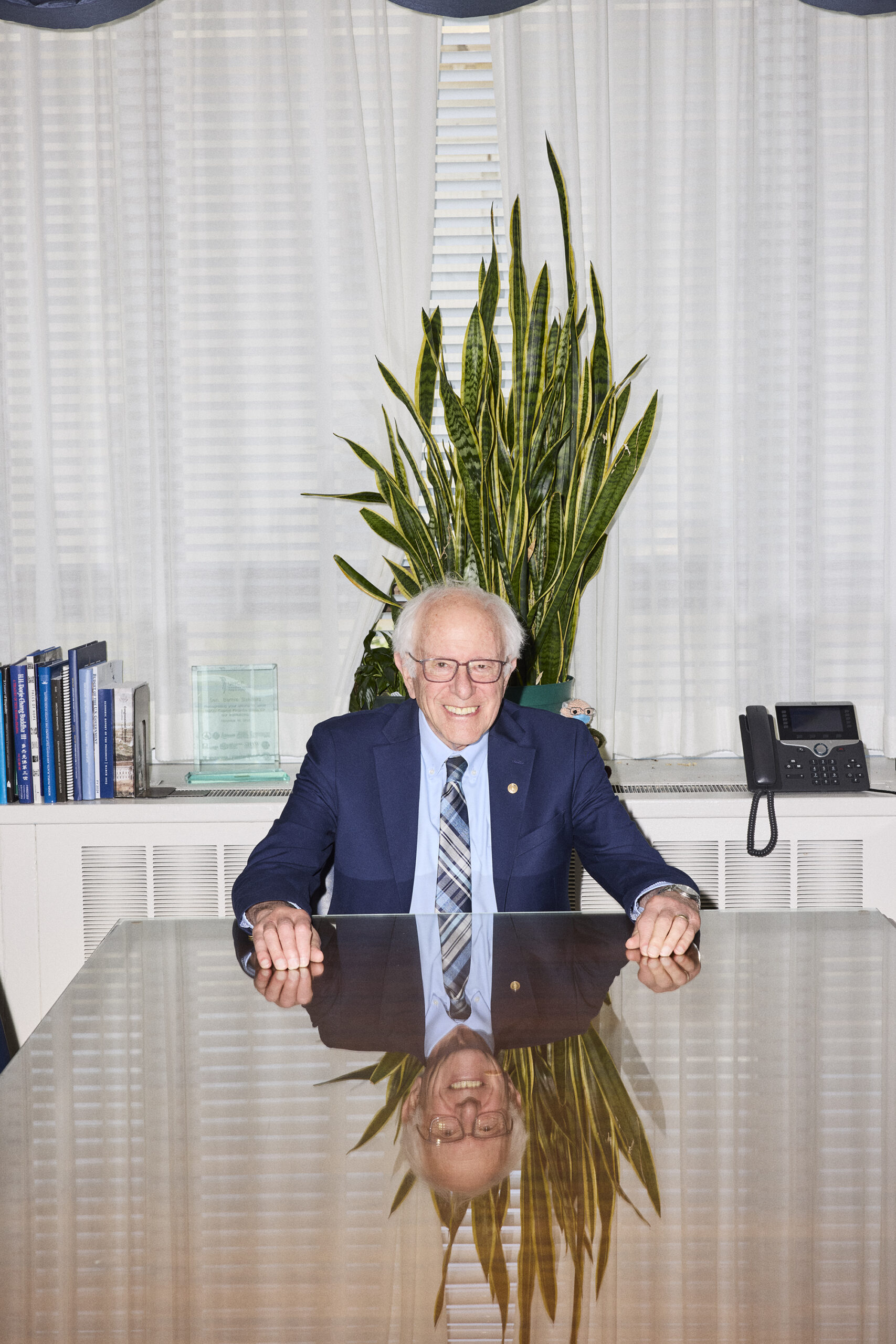
NICHOLS: Right.
SANDERS: I’m trying to create a sense of outrage about not only people like Elon Musk’s wealth, but the fact that you have, in America today, CEOs making 350 times what workers are making. You’re having the top 1 percent owning more wealth than the bottom 93 percent. These are issues we’ve got to put out on the table and discuss, and when the American people understand that, there will be a demand for fundamental changes in this corrupt system.
NICHOLS: Do you think it’s fair to say that you grew up working class?
SANDERS: Absolutely. That’s a fact. We grew up in a three-and-a-half-room apartment in Brooklyn. It was rent controlled, thank God. Even though we were poor, we always had enough food on the table. My father worked all the time. And like so many other families then and today, at the end of the week there was very little or nothing left over. What I remember very keenly as a child are the arguments my parents would have over money. My mother would like to spend money on this or that. Her dream was that one day we would own our own home. She died young and that never happened. But the stresses of not having enough money permeated every aspect of our household and helped shape my political views.
NICHOLS: Were your neighbors also facing financial struggles?
SANDERS: Absolutely. Everybody was in the same boat. I was just thinking about this the other day. The older you get, the more you think about your childhood. But here’s something strange, John. When I was a kid, in my neighborhood, almost without exception, Dad went out to work, never made a lot of money, and Mom stayed home with the kids. Living in a rent-controlled apartment made this possible in many respects. In the late ’40s and ’50s, a worker could bring in enough money to pay the bills and take care of the family. Now, how many working-class or even middle-class families do you know today living off one income? Not many.
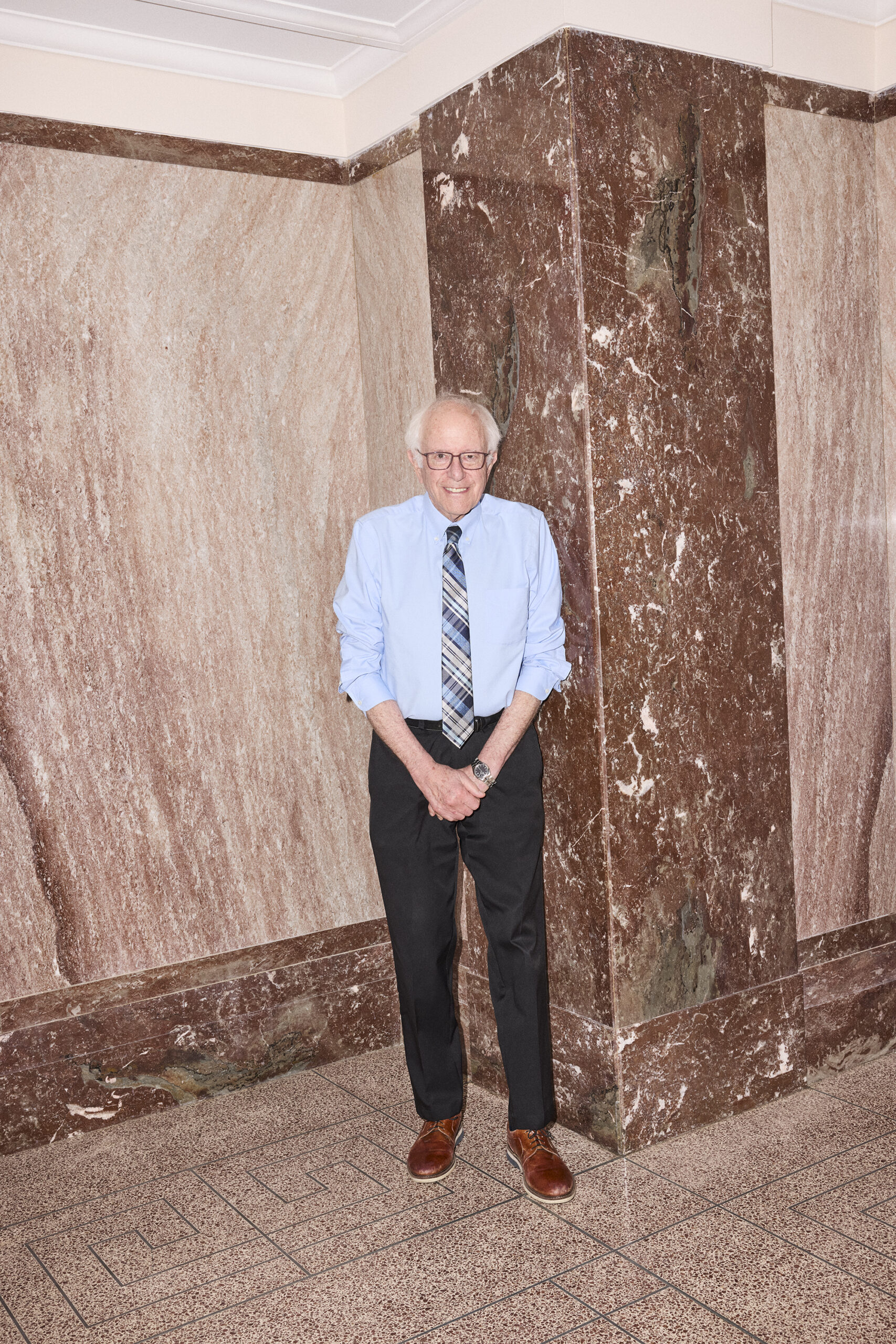
NICHOLS: Today, even those working-class neighborhoods like the one you grew up in are becoming increasingly unaffordable.
SANDERS: We were probably spending between 15 and 20 percent of my father’s weekly income on housing. Do you know any human being today who is spending 15 or 20 percent of their income on housing?
NICHOLS: People would think they’d gone to nirvana if they had that.
SANDERS: The reality is that you have about 20 million people in America spending so much of their income on housing. So your point is exactly right. It’s not just an issue for Burlington, Vermont, or New York City or L.A. This is an issue across the country. And you know what? It is an issue all over the world. You think working-class people can live in London right now? They can’t.
NICHOLS: Oh, no.
SANDERS: All over the world, you’re seeing young people simply unable to own a home. Fifty years ago, American workers were able to buy their own home at a reasonably young age. That ain’t the case today.
NICHOLS: Do you think something happened along the way in your lifetime? I mean, we always had rich and poor in America, and we always had income inequality, but did something happen from the time you were growing up in Brooklyn to now that shifted the equation?
SANDERS: Somewhere along the line, the ruling class decided that it had no moral responsibility to the people who worked for them, and greed became the dominant ideology. No compassion, no concern, no more thinking, “Well, you’re my employee, I’m going to take pride in making sure you can raise your kids well.” It’s even worse today. Trumpism is about this dog-eat-dog mentality. Everybody’s in it for themselves.
NICHOLS: Mm-hmm.
SANDERS: According to the RAND Corporation, over the last 50-some years, there’s been a $79 trillion redistribution of wealth from the bottom 90 percent to the top 1 percent. During that period, while worker productivity exploded because of new technology, wages hardly increased at all. As a result, the people on top are doing better today than they’ve ever done, while the working class has gone nowhere in a hurry.

NICHOLS: You saw this happening as a relatively young man and began to identify as a democratic socialist, somebody who thought there was something amiss in the economic system. When you initially did that, people thought it was quirky or out of sync.
SANDERS: It’s not like I sat around as an economist for 40 years analyzing data every day. You grow up and look around and you make a moral and emotional judgment. Is it appropriate that some people today have billions and billions of dollars and other people have nothing, other people are sleeping out on the street, other people are so stressed out that they come down with all kinds of physical and emotional illnesses? You just look at it from a moral and emotional perspective. We can do a hell of a lot better.
NICHOLS: Yes.
SANDERS: We are in the year 2025 in the richest country in the history of the world. Should millions and millions of people be scared to death that they’re not going to be able to pay their rent? Worried that they are not going to be able to put food on the table for their kids? That’s not hyperbole; that’s reality. Should we, as a nation and as a planet, be able to do better? I think so. As a former mayor, as a congressman, senator, and as somebody who ran for president and got all over this country, I see a lot. One of the things that I’m most moved by is people’s willingness to open up and talk about what their lives are like if you’re making 14 or 15 bucks an hour, if you have no health care. I’ll never forget, some guy’s wife wouldn’t tell him that she was ill because she didn’t want to worry him about the financial burden that the family would experience. The moral tone of this thing should shock you. Billionaires have their own island somewhere in Florida, while other people struggle. That’s a failed system.

NICHOLS: A couple of years ago, you and I spent quite a bit of time writing a book together. When we finished it, we toyed with the idea of what a title would be and settled on It’s OK to Be Angry About Capitalism. I remember some of the folks around the publishing house thought that was a bit edgy. What I’ve been struck by is how many people have tapped into that message and said that it’s valuable. It’s valuable for people to know that they can be angry about the system. That it’s not their failure. It is, as you suggest, a systemic failure.
SANDERS: We are looking at a moment where there is not only unprecedented inequality, but also an unprecedented level of greed. I mean, these guys really do want it all. They really believe they have the divine right to rule. They could care less about other people. You see right now under the current uber-capitalism, in sector after sector of our economy, whether it’s agriculture, financial, media, or transportation, there’s a tiny number of huge corporations dominating those sectors. You have three major Wall Street firms—Blackstone, State Street, and Vanguard are the major stockholders of American corporations. It’s an enormous concentration of ownership and power.
NICHOLS: Mm-hmm.
SANDERS: This is not the old capitalism of, I’m going to go out and start a business, make some money. These are small numbers of people with incredible economic power, and these guys now control American politics. No one can deny that you’re looking at a corrupt political system. I don’t care if you’re a conservative Republican or a socialist. Do you think that it makes any sense for a democracy to have one guy like Elon Musk spending more than $270 million to elect Donald Trump as president and then his reward is to become the most powerful person in government and do massive harm? On the other hand, you have billionaire Democrats. You know why there’s not more opposition in Congress on the horror that is taking place in Gaza right now, with the starvation of children? That has everything to do with super PACs, like AIPAC (American Israel Public Affairs Committee), funded by billionaires. The billionaire class fundamentally controls the economy; they control the media shaping what we see, hear, and think; and they control the political system as well.

NICHOLS: I remember talking to you earlier this year after Trump became president. In those first weeks, looking at the circumstances in Washington, it looked to me like an inability by the Democratic Party to figure out how to deal with Trump and Trumpism and what was going on at that moment. And then you decided to go around America with this Fighting Oligarchy Tour. Am I right to say it even surprised you how much of a response there was to it?
SANDERS: Absolutely. We were shocked. We had some great, great turnouts all over the country, in California and New York especially. No one’s running for anything. We’re just going out there to talk about what’s going on in America. Then you have 20,000 people in Folsom, California. The only thing I’d known about Folsom is the Johnny Cash song. We had 34,000 people out in Denver. We had 12,000 people out in Salt Lake City. Eight thousand people out in Boise, Idaho. Yeah, huge turnouts. And 30 percent of those people were not Bernie Sanders supporters. A number of them were Republicans and independents. I think what the response tells me is that there is a lot of deep concern about Trumpism, the movement toward oligarchy, authoritarianism, kleptocracy, and the legislative war to give tax breaks to billionaires while cutting Medicaid and food stamps. There’s a lot of concern in the country—and it’s also in some of the most conservative parts of America. We’re taking the tour to Texas, Oklahoma, Louisiana. No matter what your politics may be, people are deeply concerned about what’s going on.
NICHOLS: A long way from Brooklyn. One of the things that struck me about these rallies is the incredible turnout of young people. You’re heading toward your mid-80s, sir. Why is it that young people seem to be so enthusiastic about the message you’re delivering?
SANDERS: Young people have a unique ability to see through dishonesty and lies. They can sense what’s true and what’s not. Most of what they see in the media and hear from politicians is just not true. We had a huge rally in California, and after you do a rally, you do what’s called a rope line. You get out there and shake hands. Some guy comes up to me and says, “You know why I like you, Bernie? You treat us like we’re intelligent human beings.” Do they agree with everything I say? Probably not. But people have a burning desire to understand what’s going on in this crazy world, and we’re offering an explanation. The explanation is not “Republicans are terrible. Democrats are wonderful.” We try to talk about how we got to where we are and where we want to go. It’s not a radical vision of America. So few have so much wealth and power, and ultimately you’ve got to stand up and say to these guys, “Guess what? This country belongs to all of us. Our democracy belongs to all of us. You cannot control it all.” That’s what I’m fighting for.

NICHOLS: You have an image as the guy in the winter coat and gloves looking grumpy—or at least that’s the way an awful lot of people try to portray you. But my sense is that while you do sometimes try to cloak it, you’re an oddly hopeful person.
SANDERS: Now, John, you’re going to ruin my reputation because probably the next thing you’re going to do is tell people I’m a nice guy and have a sense of humor. I don’t want to make that public. [Laughs] My image will be destroyed. On that note, I’ve got to go.
NICHOLS: I’m going to make you answer one last question. Do you have hope for America?
SANDERS: One of the privileges that I’ve had is being in every state in this country and talking to extraordinarily wonderful people—and that gives me hope. We are a nation of wonderful people, but the system that we’re living under is broken and corrupt, and we’ve got to change it.
NICHOLS: You made an endorsement in the New York mayoral Democratic primary race for Zohran Mamdani. Why?
SANDERS: I think that the status quo politics of the Democratic establishment is designed to fail. It cannot succeed. The crises facing cities like New York in terms of affordable housing, in terms of crime, in terms of transportation, in terms of drugs, in terms of child care—man, I question the sanity of anybody who wants to be mayor of a large city like New York. But I’ve been very impressed by the vision that Zohran has laid out in terms of dealing with some of the major crises facing the city. And I’ve also been very impressed by the grassroots movement that he’s put together. This was the same old story as the billionaire establishment supporting Cuomo, and it’s a grassroots movement supporting Zohran. And the choice to me was pretty clear.
NICHOLS: Thank you for the talk.
———
Photographed by: Jeremy Liebman.

